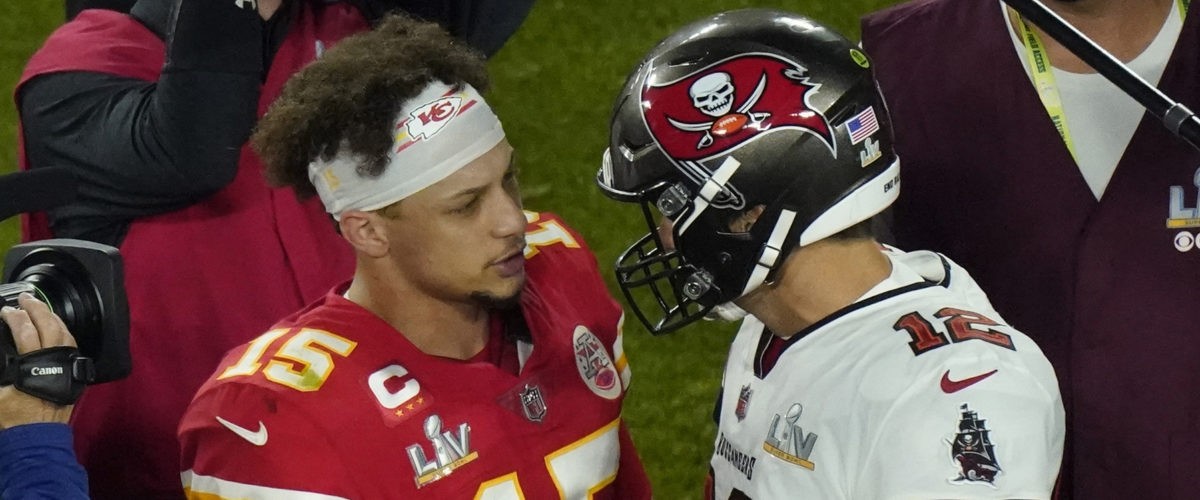Kansas City Chiefs quarterback Patrick Mahomes has taught us much about athletic prowess in his relatively short football career. At the high school in small-town Whitehouse, Texas, he was a local football hero. In his senior year, he passed for 4,619 yards, ran for 948 yards, scored 50 passing and 15 rushing touchdowns. That year (2013-14) he was named the Male Athlete of the Year by Maxpress, a division of CBS Sports that specializes in high school athletics.
On scholarship as a Texas Tech Red Raider, Mahomes became the starting quarterback as a sophomore, and during two seasons he broke multiple NCAA records. In his junior year, he led the country in “yards per game (421), passing yards (5,052), total offense (5,312), points responsible for (318), and total touchdowns (53)” That year he was awarded the Sammy Baugh Trophy, given each year to the leading college passer in the nation.

Robert Sellers
The young quarterback chose to enter the NFL draft after his junior year at Texas Tech. At the NFL Scouting Combine, competing against other draft hopefuls, his accurate passes were clocked at 60 mph, which helped to assure his first-round NFL 2017 pick by the Kansas City Chiefs.
After substituting for veteran Alex Smith during that season, Mahomes became the starting quarterback beginning in the 2018 season. During his first 10 career NFL games that season, he threw 29 touchdown passes, more than any quarterback in NFL history in their first 10 games. Mahomes became only the second quarterback (along with Peyton Manning in 2013) to throw for 50 touchdowns and 5,000 passing yards in a single season, thereby breaking the Chiefs’ single-season passing touchdown record, which led to his being awarded the ESPY as the Best NFL Player at ESPN’s annual awards show in July 2019, as well as his being selected for the 2019 Pro Bowl.
During the 2019–20 playoffs, Mahomes led the Chiefs to Super Bowl LIV, their first Super Bowl appearance in 50 years, where they defeated the San Francisco 49ers for their first Super Bowl victory since 1970. He was named MVP for that game, only the second African American quarterback to win that recognition. As the second-youngest quarterback to win the Super Bowl, he signed a 10-year extension contract worth more than $500 million, the second largest in sports history.
Without dispute, it is correct to assert that Patrick Mahomes has provided enormous instruction to young, aspiring players and armchair quarterbacks alike about playing the game of football, illustrated by his exceptional athletic skills. Yet, that is not the only thing he has taught us.
This 26-year-old also has demonstrated how to compete in the more important “game” of life.
“This 26-year-old also has demonstrated how to compete in the more important ‘game’ of life.”
Super Bowl LV was the much-hyped showdown between two quarterback greats — the young sensational Mahomes vs. 43-year-old Tom Brady of the Tampa Bay Buccaneers, widely touted as the greatest quarterback in NFL history. It was perceived to be a contest between the stars of two generations, and it stirred incredible interest and precipitated massive sports betting.
The odds-makers thought the game would be close, but that Mahomes and the Chiefs ultimately would win. In a pre-game panel of five CBS sports experts, representing the network that would carry Super Bowl LV, four had Kansas City on top by scores of 31-27, 32-24, 38-35 and 34-30. Only former Pittsburg Steelers coach Bill Cowher chose Tampa Bay to win, by a score of 24-20. Reflecting the dominant opinion among sportswriters, Bill Bender — representing Sporting News, an online professional sports news website begun in 1886 as a print magazine — gave the Chiefs a 35-32 victory.
Yet in a game that startled almost all his fan base, as well as the bookmakers, professional gamblers and casual wagerers, Tampa Bay won. And the contest wasn’t even close, ending in a score of 31-9. Mahomes had every reason to be shocked at the outcome — especially given the clear expectation he must have had that his youth, skill and especially his seasoned team with whom he had played four seasons would lead the Chiefs to their second straight Super Bowl victory.
Of course, avid Kansas City fans were disappointed. Perhaps some were angry and disbelieving. A few might have expected their hero to explain the loss by pointing to factors outside his control; but Mahomes taught us all a great lesson about fairness, integrity, sportsmanship, honesty and graciousness.
As soon as the game ended, in the midst of Tampa Bay’s ecstatic celebration, Mahomes approached Brady at midfield. Cameras and microphones recorded the exchange. Embracing one another with the typical man-to-man brief hug and mutual back slapping, Mahomes said to Brady, “You’re a legend, man,” adding, “Congrats man.” And Brady replied, “You’re a stud. Let’s keep in touch.”
“What Patrick Mahomes demonstrated on Super Bowl Sunday was more than a clinic on quarterbacking.”
What Patrick Mahomes demonstrated on Super Bowl Sunday was more than a clinic on quarterbacking. He exemplified courage, respect and grace. Despite his feelings of disbelief and disappointment, he acted like a mature individual, a real man. He admitted the reality of his loss and congratulated the winner.
In an interview after the game, Mahomes said: “Obviously I didn’t play the way I wanted to play. What else can you say? All you can do is leave everything you have on the field.”
Then, rather than finding someone to blame — the referees, his coaches, his fellow players — he praised his teammates, saying, “I’m proud of the guys and how they fought ’til the very end of the game.” He didn’t accuse Brady or the Buccaneers of cheating in order to win. He didn’t say that the only way that he and the Chiefs could have lost was by having the game stolen from them. Instead, he said: “They were the better team today. They beat us pretty good, the worst I think I’ve been beaten in a long time.”
In these opening weeks of 2021, America and the world have seen two ways of responding to unexpected loss. In front of America and the world, Patrick Mahomes has made the better choice, and history will remember him — not as a loser, but as a consummate winner.
Rob Sellers is professor of theology and missions emeritus at Hardin-Simmons University’s Logsdon Seminary in Abilene, Texas. He is the immediate past chair of the board of the Parliament of the World’s Religions in Chicago. He and his wife, Janie, served a quarter century as missionary teachers in Indonesia. They have two children and five grandchildren.


